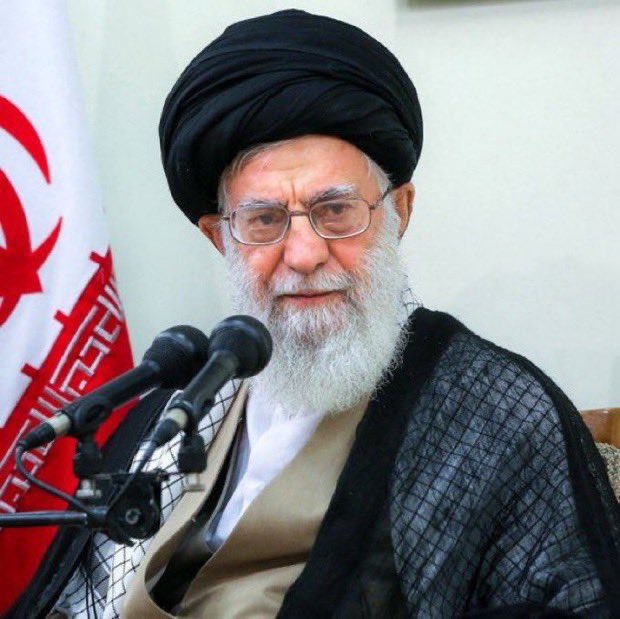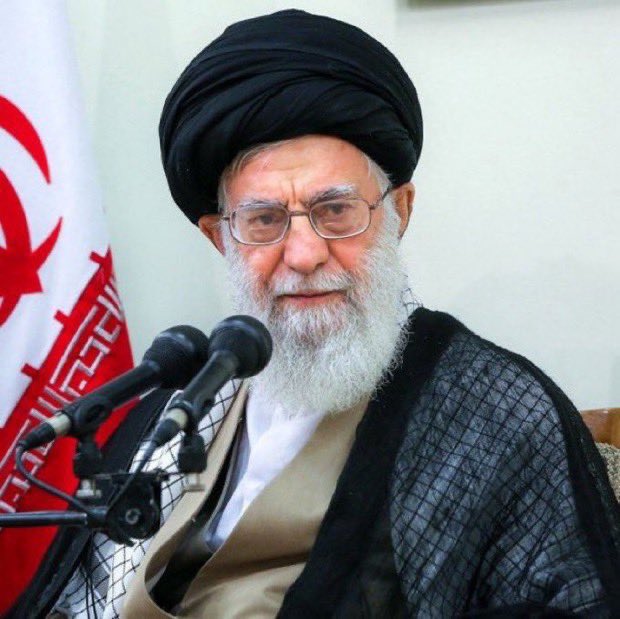Iran Strikes US Al-Udeid Base: Limited Damage, No Casualties!
Breaking news: Iranian Missile Strikes U.S. Airbase in Qatar
In a significant escalation of military tensions in the Middle East, a missile fired from Iran has reportedly struck the United States’ Al-Udeid airbase in Qatar. The incident, which occurred on June 23, 2025, has raised alarms across the region and among international observers. Despite the gravity of the situation, initial reports indicate that the missile strike resulted in limited damage and no casualties.
The Context of the Incident
The Al-Udeid airbase serves as a crucial hub for U.S. military operations in the Middle East, housing thousands of American troops and acting as a key center for air operations in the region. This airbase has been pivotal for missions against ISIS and other militant groups, as well as a strategic point in the ongoing U.S.-Iran tensions. The strike represents one of the most direct military engagements between Iran and the United States in recent years, highlighting the fragile security situation in the area.
Details of the Missile Strike
Details surrounding the missile strike are still emerging. According to reports from various news outlets, the missile successfully reached its target, but the extent of the damage appears to be minimal. U.S. officials have stated that there were no injuries or fatalities among the personnel stationed at Al-Udeid, which is a relief given the potential for a much larger scale of devastation. The quick response from U.S. forces, as well as the base’s advanced defense systems, likely mitigated what could have been a catastrophic situation.
International Reactions
The missile strike has prompted a swift response from international leaders and organizations. Many countries have expressed their concern over the escalation of hostilities between Iran and the United States. The United Nations is expected to convene an emergency meeting to discuss the implications of this strike and to call for restraint from both parties involved. Analysts believe that this incident could further complicate diplomatic relations in the region, as tensions have already been high due to ongoing disputes over Iran’s nuclear program and its influence in neighboring countries.
- YOU MAY ALSO LIKE TO WATCH THIS TRENDING STORY ON YOUTUBE. Waverly Hills Hospital's Horror Story: The Most Haunted Room 502
Impact on U.S.-Iran Relations
This missile strike marks an alarming development in U.S.-Iran relations, which have been strained since the U.S. withdrawal from the Iran nuclear deal in 2018. The ongoing tensions have led to a series of military posturing, sanctions, and proxy conflicts throughout the region. The incident may prompt a reevaluation of U.S. military strategy in the Middle East, particularly regarding the protection of its bases and personnel.
Military experts suggest that the U.S. may need to enhance its defensive measures at the Al-Udeid airbase and other installations in the region to deter future attacks. This could involve increasing the presence of anti-missile defense systems and conducting more extensive military drills to prepare for potential escalations.
The Broader Implications
The implications of this missile strike extend beyond U.S.-Iran relations. The incident could have a ripple effect on regional stability, particularly in the Gulf states. Countries like Saudi Arabia and the United Arab Emirates may feel compelled to reassess their own security strategies in light of the increasing threat posed by Iranian military capabilities. Furthermore, this event could embolden Iran’s allies and proxies in the region, leading to a potential uptick in asymmetric warfare tactics against U.S. interests.
The international community is also likely to scrutinize Iran’s actions more closely following this incident. The missile strike may bolster calls for stricter sanctions and diplomatic measures aimed at curtailing Iran’s missile program and its regional influence. Concurrently, it could also lead to increased dialogue among world powers to address the underlying issues driving the conflict, such as Iran’s nuclear ambitions and its support for various militant groups.
Conclusion
The missile strike on the Al-Udeid airbase serves as a stark reminder of the volatile nature of geopolitical relations in the Middle East. As the situation continues to develop, it is essential for global leaders to seek diplomatic solutions to prevent further escalations. The world is watching closely, and the actions taken in the coming days will be crucial in shaping the future of U.S.-Iran relations and the broader stability of the region. As we gather more information, it remains imperative to stay informed about the evolving dynamics of this critical situation.
For ongoing updates and analyses, follow credible news sources and expert commentary on Middle East security and international relations.

BREAKING: ONE IRANIAN MISSILE HIT the United States’ Al-Udeid airbase in Qatar.
Limited damage & no casualties were reported as a result of the strike. pic.twitter.com/2t31w19scw
— Jackson Hinkle (@jacksonhinklle) June 23, 2025
BREAKING: ONE IRANIAN MISSILE HIT the United States’ Al-Udeid airbase in Qatar
On June 23, 2025, a significant event unfolded in the complex landscape of Middle Eastern geopolitics. An Iranian missile struck the United States’ Al-Udeid Airbase in Qatar, marking a pivotal moment in the ongoing tensions between Iran and the U.S. While the strike caused limited damage and thankfully resulted in no casualties, it undeniably escalated concerns about the stability of the region. Understanding the implications of this incident requires delving into the historical context, the strategic importance of the Al-Udeid Airbase, and the broader ramifications for U.S.-Iran relations.
Understanding the Al-Udeid Airbase
Al-Udeid Airbase serves as a crucial hub for U.S. military operations in the Middle East. Located just outside of Doha, Qatar, it is one of the largest American military installations in the region. This base plays a significant role in supporting operations in Iraq and Afghanistan, as well as providing a strategic platform for air operations throughout the Gulf region. The presence of U.S. forces at Al-Udeid is pivotal for maintaining balance and security, especially given the volatile nature of regional politics.
### The Historical Context of U.S.-Iran Relations
To truly grasp the gravity of the Iranian missile strike, one must consider the history of U.S.-Iran relations. The relationship has been fraught with tension since the 1979 Iranian Revolution, which saw the overthrow of the U.S.-backed Shah and the establishment of the Islamic Republic. Over the decades, both nations have engaged in a series of conflicts, sanctions, and diplomatic maneuvers, leading to a complicated dynamic that continues to evolve.
The U.S. has often accused Iran of supporting terrorism and destabilizing the region, while Iran sees U.S. actions as imperialistic interventions. This backdrop of mutual distrust and animosity makes incidents like the missile strike on Al-Udeid particularly sensitive and potent.
Immediate Reactions to the Missile Strike
Following the missile strike, reactions poured in from various stakeholders. U.S. officials condemned the attack, emphasizing that it would not go unanswered. On the other hand, Iran hailed the strike as a demonstration of its military capabilities and a response to perceived aggressions by the U.S. This incident has rekindled debates about military presence in the region and the effectiveness of current diplomatic efforts.
### The Impact on Regional Stability
The missile attack on Al-Udeid Airbase has broader implications for regional stability. The U.S. has maintained a presence in the Middle East to deter threats from Iran and to support its allies. The strike may prompt a reevaluation of military strategies and alliances in the region. Countries like Saudi Arabia and the United Arab Emirates, who rely on U.S. support for their own security, will undoubtedly be watching closely, as the balance of power could shift depending on the U.S. response.
Moreover, the missile strike raises concerns about the potential for further escalations. If the U.S. were to retaliate, it could trigger a cycle of violence that might engulf neighboring countries. The delicate balance of power in the region hangs in the balance, and the repercussions of this incident could be felt for years to come.
Potential Military Responses and Diplomatic Efforts
In the wake of the missile strike, discussions about military responses have surfaced. The U.S. military has a plethora of options at its disposal, ranging from targeted airstrikes to increased troop deployments in the region. However, any military action comes with its own set of risks and consequences, especially considering the potential for civilian casualties and the escalation of hostilities.
On the diplomatic front, efforts to resume negotiations with Iran may become more complicated. The Biden administration has been attempting to engage Iran through diplomatic channels to revive the nuclear deal, but incidents like the missile strike could hinder these efforts. A delicate approach will be necessary to navigate the complexities of this situation without exacerbating tensions further.
### The Role of International Allies
International allies play a crucial role in shaping the response to the Iranian missile strike. European nations, who have been involved in diplomatic negotiations with Iran, may push for restraint from both sides. Organizations like the United Nations could also step in to advocate for dialogue over conflict. The response of key players, including Russia and China, will also be critical, as their interests in the region may influence the actions of Iran and the U.S.
Conclusion: The Path Forward
The missile strike on the Al-Udeid Airbase is a stark reminder of the fragile state of affairs in the Middle East. The limited damage and lack of casualties provide a glimmer of hope, but the underlying tensions remain unresolved. As the U.S. grapples with its response, the focus must remain on preventing further escalations while seeking diplomatic solutions to ensure long-term stability in the region.
As the world watches these developments unfold, it’s clear that the stakes are high. The interplay between military action and diplomatic efforts will shape the future of U.S.-Iran relations and the broader geopolitical landscape in the Middle East. The need for careful navigation through these turbulent waters has never been greater, as the consequences of missteps could echo far beyond the borders of Qatar.

